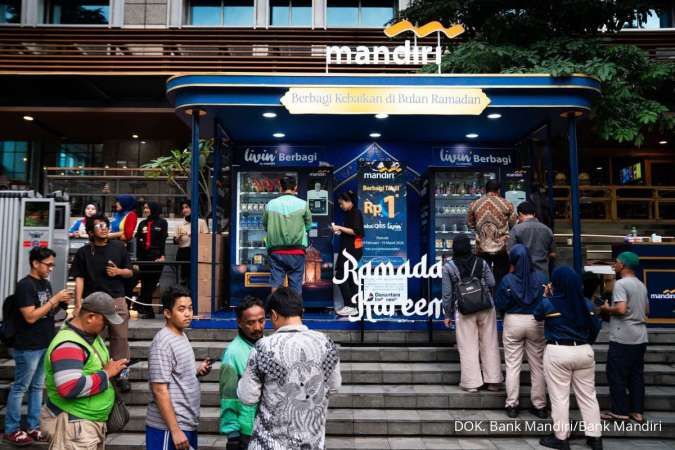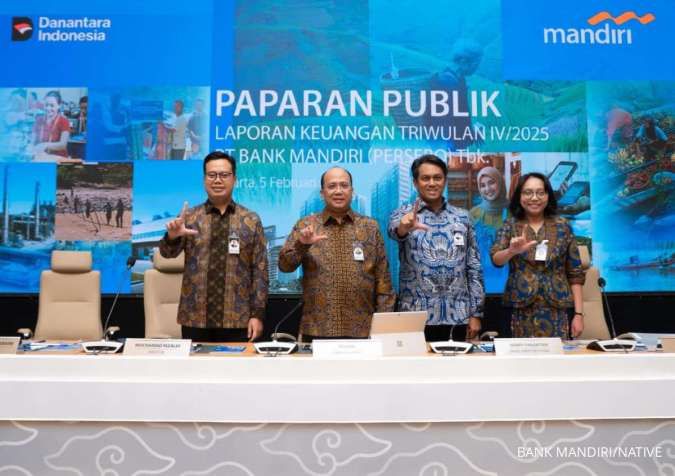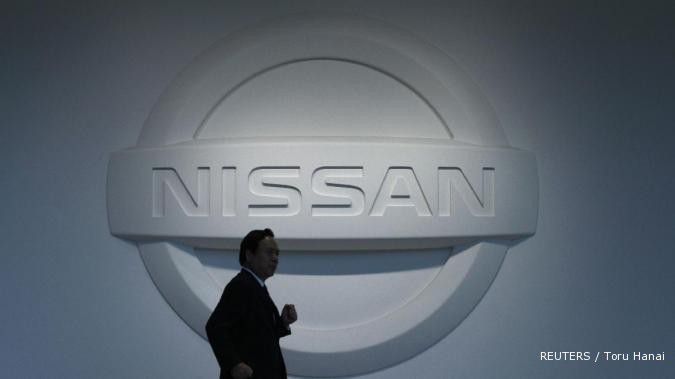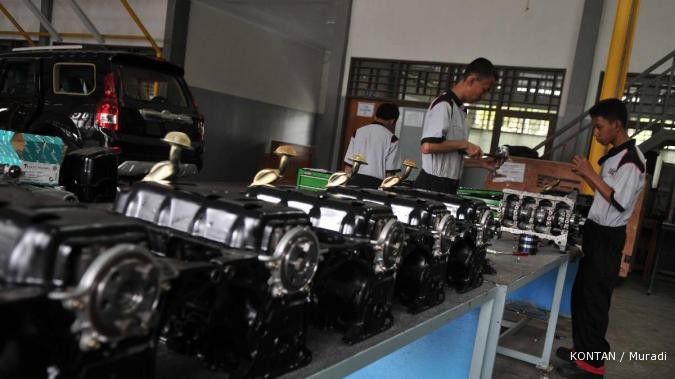JAKARTA. The government will discuss much-needed incentives to lure foreign producers to build low carbon-emission cars, including hybrid and electric cars, locally. The move follows on the heels of the interest expressed earlier this week by the local unit of Japan’s major automaker, the Toyota Motor Corporation, to expand sales and produce such cars locally. Industry Minister M.S. Hidayat said that he would hold talks with industry players to gather input to lay out specific incentives both to boost sales of the designated eco-cars and to attract investment to increase domestic manufacturing. “The need to produce these cars is already urgent. I will draft the rules and bring them for discussion within the government,” he told reporters after inaugurating the export of affordable eco-friendly cars made by Suzuki to Pakistan. As the prices of the low carbon-emission vehicles were on average 40 percent higher than those of regular cars, ways should be sought to make them more affordable for Indonesian buyers, Hidayat added. The government has so far provided discounts, ranging from 50 percent to 75 percent, on the luxury-goods sales tax for low carbon-emission cars made domestically, but it has failed to attract investors. However, as the government recently raised the tax from 75 percent to 125 percent of the total cost, it has further eroded buyers’ appetites for purchasing this type of car. There has been no official figure for sales of hybrid or electric cars nationwide, but according to industry players, the number is “very small”. Toyota, for instance, sold 353 units of its hybrid Camry last year in the Indonesian market, which saw car sales top 1.2 million units last year. Indonesia lags far behind its Southeast Asian neighbors, like Thailand and Malaysia, which have had a greater head start in developing their hybrid and electric cars. Sales of hybrid cars in Thailand, for example, exceed 20,000 units each year. Toyota has already produced its hybrid Camry in Thailand, while Honda also makes its hybrid Jazz there. In a recent move, Malaysia revised its excise duty with exemptions given only to locally assembled or completely-knocked down hybrid and electric cars in a bid to draw investors to domestic production and compete with Thailand. The hybrid and electric cars incur a tax rate of 272 percent in Malaysia. The new tax will help Malaysia, which aims to become a production hub for energy-efficient vehicles, set itself apart from Thailand, where global car makers have focused on pickup trucks and other types of vehicles. Industry Ministry director general for high technology priority industry Budi Darmadi said that without the incentives, the price of hybrid and electric cars would only fall in the next two or three years if research and development in the automobile industry found ways to produce cheaper components like batteries and electric engines. “That would be likely to reduce prices to a level only 25 percent more expensive than regular cars,” he said. (Linda Yulisman)
Govt may try to lure green car makers to RI
JAKARTA. The government will discuss much-needed incentives to lure foreign producers to build low carbon-emission cars, including hybrid and electric cars, locally. The move follows on the heels of the interest expressed earlier this week by the local unit of Japan’s major automaker, the Toyota Motor Corporation, to expand sales and produce such cars locally. Industry Minister M.S. Hidayat said that he would hold talks with industry players to gather input to lay out specific incentives both to boost sales of the designated eco-cars and to attract investment to increase domestic manufacturing. “The need to produce these cars is already urgent. I will draft the rules and bring them for discussion within the government,” he told reporters after inaugurating the export of affordable eco-friendly cars made by Suzuki to Pakistan. As the prices of the low carbon-emission vehicles were on average 40 percent higher than those of regular cars, ways should be sought to make them more affordable for Indonesian buyers, Hidayat added. The government has so far provided discounts, ranging from 50 percent to 75 percent, on the luxury-goods sales tax for low carbon-emission cars made domestically, but it has failed to attract investors. However, as the government recently raised the tax from 75 percent to 125 percent of the total cost, it has further eroded buyers’ appetites for purchasing this type of car. There has been no official figure for sales of hybrid or electric cars nationwide, but according to industry players, the number is “very small”. Toyota, for instance, sold 353 units of its hybrid Camry last year in the Indonesian market, which saw car sales top 1.2 million units last year. Indonesia lags far behind its Southeast Asian neighbors, like Thailand and Malaysia, which have had a greater head start in developing their hybrid and electric cars. Sales of hybrid cars in Thailand, for example, exceed 20,000 units each year. Toyota has already produced its hybrid Camry in Thailand, while Honda also makes its hybrid Jazz there. In a recent move, Malaysia revised its excise duty with exemptions given only to locally assembled or completely-knocked down hybrid and electric cars in a bid to draw investors to domestic production and compete with Thailand. The hybrid and electric cars incur a tax rate of 272 percent in Malaysia. The new tax will help Malaysia, which aims to become a production hub for energy-efficient vehicles, set itself apart from Thailand, where global car makers have focused on pickup trucks and other types of vehicles. Industry Ministry director general for high technology priority industry Budi Darmadi said that without the incentives, the price of hybrid and electric cars would only fall in the next two or three years if research and development in the automobile industry found ways to produce cheaper components like batteries and electric engines. “That would be likely to reduce prices to a level only 25 percent more expensive than regular cars,” he said. (Linda Yulisman)




